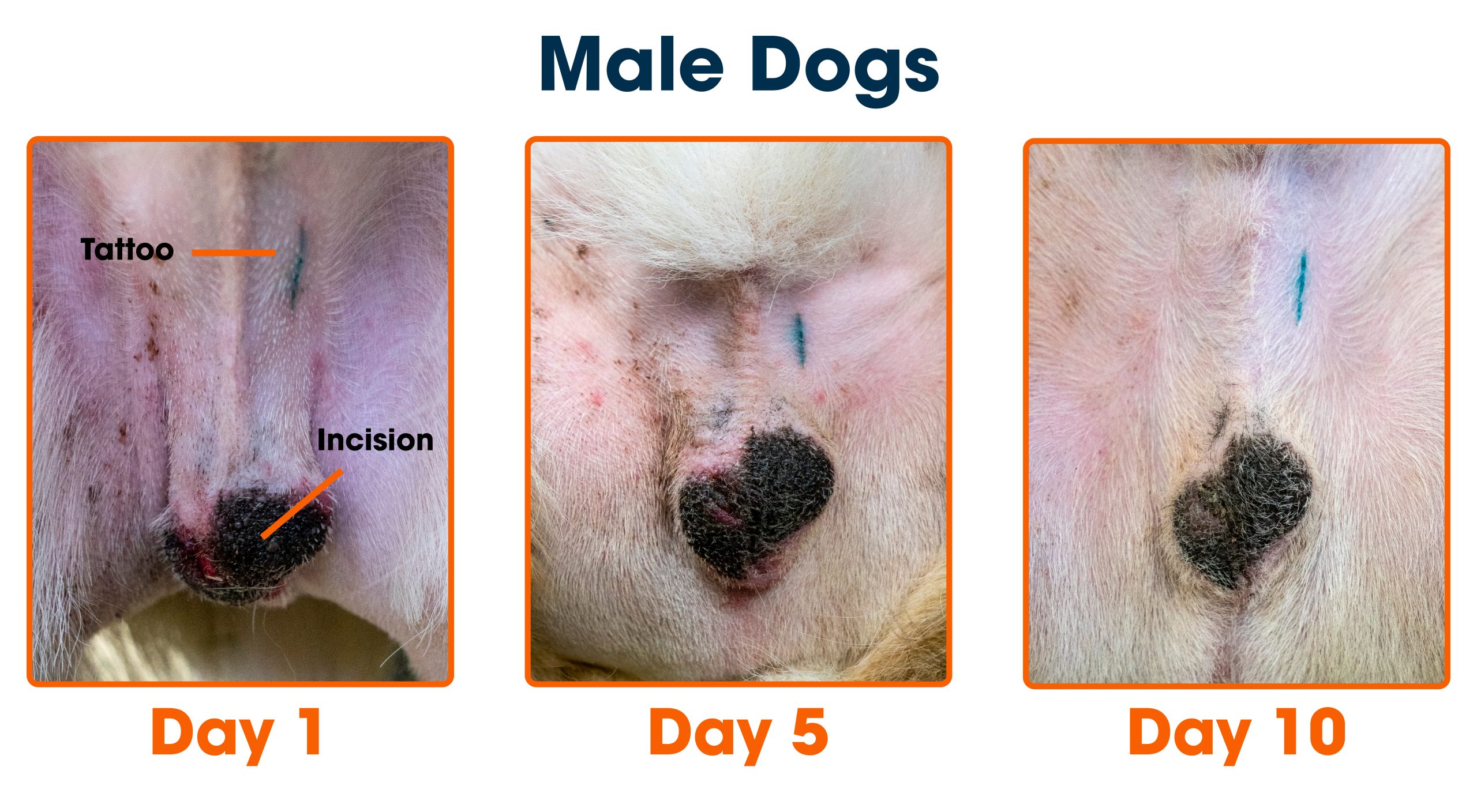Are you thinking about fostering a dog but worried about the vet bills? You’re not alone.
Taking care of a furry friend can be expensive, especially when unexpected health issues come up. But what if you knew there are ways to ease that financial burden? Understanding who pays those vet bills when you foster a dog can make a huge difference in your decision.
Keep reading to discover how you can focus on giving love and care without stressing over the costs. This could be the information that makes fostering a dog feel right for you.
Foster Care Basics
Fostering a dog is a rewarding experience that brings joy and challenges in equal measure. Understanding the basics of foster care helps you prepare for what lies ahead. You’ll learn what’s expected from you and how to manage the needs of your foster dog effectively.
Role Of A Foster Parent
As a foster parent, you provide a temporary, loving home for a dog in need. Your job goes beyond feeding and walking; you become the dog’s first step towards a better life. This means observing their behavior, socializing them, and helping them adjust to everyday life.
One key responsibility is to communicate regularly with the rescue organization or shelter. You report health updates, behavior changes, and any concerns. Your feedback often guides the dog’s next placement or medical care.
Think about the last time you cared for someone else’s pet. Did you notice small changes that could impact their well-being? That kind of attention is exactly what a foster dog needs from you.
Typical Foster Dog Needs
Foster dogs can come with a variety of needs depending on their background. Many require basic care like feeding, exercise, and gentle training. Others might need medical attention or special diets.
- Medical Care:Vaccinations, flea treatments, or post-surgery recovery often fall under your watch. The rescue usually covers vet bills, but you need to ensure appointments are kept.
- Behavioral Support:Some dogs need help overcoming fears or learning house rules. Patience and consistency in training make a big difference.
- Socialization:Introducing your foster dog to new environments, people, and pets helps them build confidence.
Have you ever paused to consider how your daily routine might need to adjust to accommodate a foster dog’s unique needs? Preparing for those changes makes the experience smoother and more fulfilling.

Credit: www.facebook.com
Who Covers Vet Expenses?
Understanding who pays the vet bills when you foster a dog is crucial before you open your home. Vet expenses can quickly add up, and knowing the financial responsibilities upfront helps you avoid surprises. Let’s break down how different organizations handle these costs and what you should expect.
Rescue Organization Policies
Many rescue groups cover the essential vet bills for foster dogs, including vaccinations, spaying or neutering, and emergency care. Usually, you’ll work with a designated vet who bills the rescue directly, so you don’t have to pay out of pocket.
However, not all rescues are the same. Some ask fosters to handle minor expenses and then reimburse you later, while others require you to pay upfront and submit receipts. It’s important to ask your rescue for a clear vet care policy before taking a dog home.
Have you ever been caught off guard by unexpected medical costs? Getting clarity on these policies can save you from stress and financial strain.
Shelter Vs. Private Rescue Differences
Shelters often have tighter budgets and limited vet services, which can affect how vet bills are managed. Many shelters rely on volunteers or partner clinics to provide low-cost care, but fosters might be expected to cover some routine expenses initially.
Private rescues, on the other hand, usually have fundraising efforts targeted specifically for medical care. This often means better coverage of vet bills and quicker approval for emergency treatment.
Think about the kind of support you want as a foster. Would you prefer a shelter where you might have more hands-on responsibility for vet costs, or a private rescue that handles most expenses for you?
Common Vet Costs
Caring for a foster dog means understanding possible vet costs. These costs vary based on the dog’s health and needs. Knowing common expenses helps you plan and avoid surprises.
Routine Checkups And Vaccinations
Routine checkups keep dogs healthy and catch issues early. Vets check weight, teeth, and overall condition during visits. Vaccinations protect dogs from diseases like rabies and distemper. These visits usually cost less than emergency care.
- Annual physical exams
- Core vaccinations
- Flea, tick, and heartworm prevention
- Dental cleanings
Emergency Care And Surgeries
Emergency care happens during accidents or sudden illness. These visits cost more due to urgency and intensive treatment. Surgeries can range from minor procedures to major operations. Costs depend on complexity and required recovery time.
- Broken bone repair
- Spaying or neutering
- Tumor removal
- Emergency wound care
Payment Procedures
Handling vet bills when you foster a dog can feel overwhelming. Understanding the payment procedures helps you focus on caring for the dog instead of worrying about finances. Let’s look at how payments usually work and what options you have as a foster caregiver.
Direct Billing Vs. Reimbursement
Direct billing means the vet clinic sends the bill straight to the rescue organization or shelter. You usually don’t have to pay anything upfront. This process simplifies things for you because the organization manages the payment.
Reimbursement requires you to pay the vet bill first. Afterward, you submit receipts to the rescue for repayment. This can be tricky if you don’t have the funds available immediately. Have you checked if your foster group prefers one method over the other?
- Direct Billing: Less financial stress, but you must ensure the vet accepts it.
- Reimbursement: Flexible choice of vet, but watch your budget carefully.
Using Foster Pet Insurance
Some foster programs provide pet insurance that covers vet visits and emergencies. This can reduce your out-of-pocket costs significantly. You might still need to pay upfront, but the insurance will cover a large part of the expenses.
Before you start fostering, ask about insurance details. Know what is covered, what isn’t, and how to file a claim. Has your foster group offered insurance? If not, could you consider purchasing a policy yourself?
- Check if the insurance covers routine care or only emergencies.
- Keep all medical records organized for easy claims.
- Understand the claim timelines to avoid delays in reimbursement.
Handling Unexpected Expenses
Unexpected vet bills can catch you off guard when fostering a dog. These costs may arise suddenly, from emergencies or unforeseen health issues, putting a strain on your budget. Handling these expenses wisely helps you stay prepared and ensures your foster dog gets the care they need without financial stress.
Emergency Fund Options
Setting up an emergency fund specifically for your foster dog can be a lifesaver. Start small by saving a fixed amount each month, even $10 or $20 adds up over time. Consider opening a separate savings account or using an app that rounds up your purchases to build this fund effortlessly.
You might also look into local community programs or charities that offer grants for unexpected veterinary expenses. Some pet stores and clinics partner with organizations providing financial help for foster pets. Have you checked if your area has such resources before facing a crisis?
Communicating With Rescues
Clear communication with the rescue organization is crucial when vet bills arise. Ask upfront about their policy on medical expenses and who covers what. Some rescues have funds set aside for emergencies, while others expect fosters to handle initial costs and reimburse later.
If your foster dog needs urgent care, contact the rescue immediately for guidance. They may direct you to preferred vets or authorize payment plans. Sharing detailed updates about your dog’s health and expenses builds trust and can help you get support when you need it most.

Credit: www.instagram.com
Documentation And Receipts
Documentation and receipts play a key role in managing vet bills for foster dogs. They provide proof of expenses and help track each visit and treatment. Keeping accurate records ensures clear communication with rescue groups or shelters. It also speeds up the reimbursement process and avoids confusion.
Keeping Track Of Vet Visits
Always keep a detailed record of every vet visit. Note the date, reason for the visit, and treatment given. Keep all receipts and invoices safe. Use a dedicated folder or digital app to organize these documents. This makes it easier to review the dog’s medical history. It also helps when submitting expenses later on.
Submitting Expenses For Reimbursement
Submit all vet bills to the foster organization promptly. Attach clear copies of receipts and any related documents. Follow the organization’s specific process for reimbursement. Some require forms to be filled out or emails to be sent. Double-check all information before submission. Timely and accurate expense claims help you get paid back quickly.
Tips For Foster Families
Fostering a dog brings joy and challenges, especially when it comes to managing veterinary care. Knowing how to handle vet bills and ensure your foster dog’s health can make a big difference. Here are some practical tips to help you navigate this important responsibility with confidence.
Budgeting For Vet Care
Vet bills can be unpredictable, so setting aside a budget is essential. Start by estimating routine costs like vaccinations, flea treatments, and check-ups. Keep a small emergency fund ready for unexpected visits.
Track your expenses carefully using a simple spreadsheet or notebook. This helps you stay organized and prevents surprises. Ask your rescue organization if they cover any vet costs—sometimes they have partnerships with clinics that offer discounts.
Consider reaching out to local vet schools or clinics that might provide lower-cost services. Would you be surprised how many resources are available if you ask around?
Advocating For Your Foster Dog’s Health
You know your foster dog best. Speak up for their needs during vet visits. Don’t hesitate to ask questions or request explanations about treatments and medications.
Watch for subtle changes in behavior or appetite that might signal health issues. Early detection can save money and improve your dog’s well-being. Share detailed notes with the vet to ensure the best care plan.
Sometimes, you may need to push for additional tests or second opinions. Trust your instincts—your dog depends on you to be their voice. How often do you pause to consider if something might be off with your foster dog?

Credit: www.instagram.com
Frequently Asked Questions
Who Is Responsible For Vet Bills When Fostering A Dog?
Typically, the rescue organization or shelter covers vet bills during fostering. Foster caregivers usually do not pay unless agreed otherwise. Always clarify financial responsibilities before fostering to avoid surprises.
Can Foster Parents Choose The Vet For The Dog?
Most rescue groups assign a preferred vet to maintain consistent care. Foster parents may request a specific vet, but approval is required. Communication with the organization is key to vet selection.
Are Emergency Vet Costs Covered For Foster Dogs?
Emergency vet costs are generally covered by the rescue group. Foster parents should notify the organization immediately for approval. Keep all receipts and documentation for reimbursement.
What Happens If A Foster Dog Gets Sick?
Notify the rescue group promptly if the foster dog falls ill. They will guide you on vet visits and treatments. Medical expenses are usually handled by the organization.
Conclusion
Fostering a dog is a rewarding experience. It comes with joys and challenges. Vet bills can be a worry. Many organizations offer help with costs. This support eases the financial burden. Always check details before fostering. Understand the terms and conditions clearly.
Your love and care make a difference. A foster dog’s health and happiness depend on you. They thrive with good care and attention. Ready to foster? Prepare and learn about vet bill policies. Your commitment can change a dog’s life.
Enjoy the journey with your foster dog. Your effort is truly valuable.







